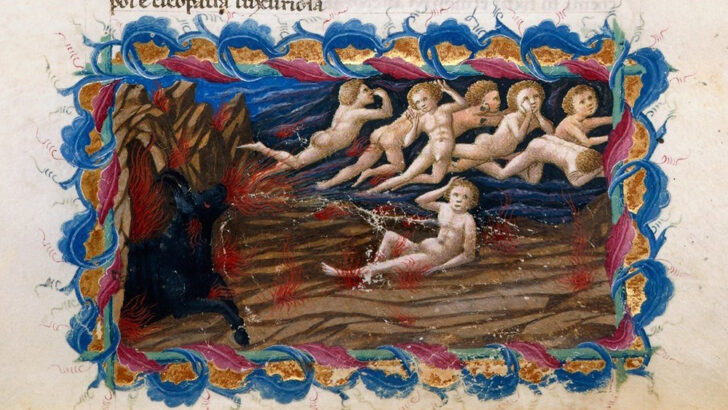Fr Patrick Briscoe OP
Sometimes you hope to be wrong.
For example: A good friend that I made in college seminary discerned out of formation and began to pursue a relationship with a young woman. I didn’t think they were a match. I told him as much. (Graciously, he did not end our friendship over my opinion.)
He continued to pursue her. Years later, they’re happily married. They’re very devout. And they’re raising a beautiful family. I was wrong, thank God!
I feel the same way about hell. I think there are a lot of souls lost for eternity because they’ve refused God’s love. I hope I’m wrong. But I don’t think I am.
Hoping versus thinking
Hell is on my mind because of a comment Pope Francis recently made. During an interview January 14 on Che Tempo Che Fa on Italy’s Nove channel, the Pope was asked how he imagines hell. The Holy Father responded, “It’s difficult to imagine it,” and added, “What I would say is not a dogma of faith, but my personal thought: I like to think hell is empty; I hope it is”.
You can imagine the reactions on social media. Some commentators declared the Pope had decreed hell was empty. Others offered more nuanced responses. Catholic speaker Chris Stefanick said on X, “It seems to me that, in Scripture, God *desires* that all men be saved but explicitly warns us that many are not.” Another X user, Fr Joseph Krupp, wrote in a post, “Why freak out over the Pope saying he hopes hell is empty? What kind of psychopaths hope hell is full?” I certainly hope it’s empty.
But there’s enough evidence in Scripture and tradition to give one pause. I might hope hell is empty, but I think that it’s probably not.
Evidence from Scripture
Jesus warns in the gospels how our attachments can keep us from heaven’s joy. “If your hand causes you to sin, cut it off. It is better for you to enter into life maimed than with two hands to go into Gehenna, into the unquenchable fire” (Mk 9:43). Jesus seems to be saying that it’s possible to reject his love and cling instead to our own desires. We can put things between us and God.
Jesus admonishes us, putting us on alert for the judgement that will come on the last day. Those sorted on the right will enter into the Father’s house. Those on the left who have ignored the way of life prescribed in the Gospel will be told, “Depart from me, you accursed, into the eternal fire prepared for the devil and his angels” (Mt 25:41).
St Paul frequently writes of the possibility of damnation. The book of Revelation offers some pretty graphic imagery about the torments of fire and brimstone that await those who belong to the devil.
Based on the teaching of Jesus and the witness of Scripture, the Church has long taught that love of God is incompatible with grave sin. Those who refuse to repent will perish (cf. Lk 13:5).
St Thomas Aquinas teaches that this eternal punishment is just. He writes: “Now after their fall the angels could not be restored. Therefore, neither can man after death: and thus the punishment of the damned will have no end. … [J]ust as the demons are obstinate in wickedness and therefore have to be punished forever, so too are the souls of men who die without charity, since ‘death is to men what their fall was to the angels’.” It’s not possible to repent after death.
And the examples of men and women who have wronged little ones, preyed on the Faithful, ignored the poor, waged wars and committed countless other crimes that cry out to heaven for vengeance are too numerous to mention here.
Did they repent? I hope so. Do I think it is likely? No. I hope I’m wrong.
Fr Patrick Briscoe, OP, is editor of Our Sunday Visitor. Follow him on Twitter/X @PatrickMaryOP



